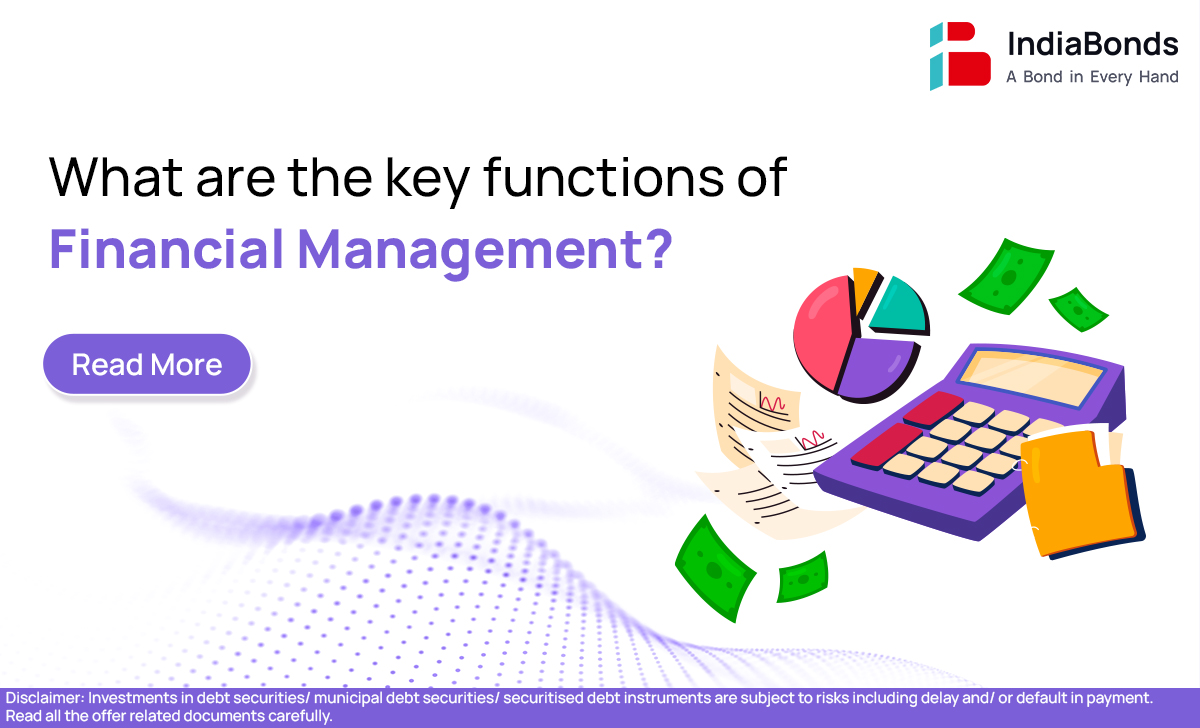What are the key functions of financial management?

Introduction
Every Indian business, big or small, survives on clean money habits. Financial management is the simple system that keeps cash coming in, bills going out, and plans moving forward. When the system works, teams focus on customers instead of money panic.
What is Financial Management?
People often ask, what is financial management in plain words. It is the full set of actions that plan, raise, spend, and track money so goals are met on time. It joins three things
planning today, controlling day to day cash, and reporting clearly so leaders can take decisions fast. Good financial management turns numbers into actions that anyone in the company can understand.
Core ideas to remember
- Money must be available at the right time and at the right cost.
- Spending must follow a written budget.
- Records must be accurate, timely, and easy to read.
- Risks must be known and controlled.
9 Major Functions of Financial Management
Below are the nine jobs that sit at the heart of the function. Each is short and practical so a manager can use it as a checklist.
- Planning and forecasting
Map sales, costs, and cash needs for the next month, quarter, and year. Test best case and worst case so there are no surprises. - Budgeting
Give every department a limit and a target. Review actuals against the budget and fix gaps early. - Capital raising
Choose the mix of equity and debt that keeps the cost of funds low and the balance sheet healthy. Negotiate with banks and investors with full data. - Capital budgeting
Approve new projects only after checking payback and net present value. Spend on ideas that clearly add value. - Working capital management
Keep the wheel turning by managing stock, receivables, and payables. Use simple tools like credit terms and invoice discounting. - Pricing and revenue management
Set prices that cover cost and tax and still stay competitive. Watch discounting so margins do not leak. - Risk management
Protect the business with insurance, customer credit checks, and where relevant currency hedging. Create a short written policy and follow it. - Accounting, compliance, and reporting
Close books on time, file GST and TDS without delay, and keep clean audit trails. Share clear MIS so leaders see the truth each month. - Dividend and investor communication
Explain how profits will be used or shared. Keep lenders and investors informed with simple updates.
Key Roles of Finance Manager in Financial Management
A finance manager wears many hats. The goal is not fancy jargon. The goal is calm operations.
- Steward
Safeguards cash, checks approvals, and keeps internal controls tight. - Operator
Runs payroll, vendor payments, and banking smoothly. Ensures monthly close and reconciliations happen on schedule. - Strategist
Reads trends in sales and costs, spots waste, and suggests actions like renegotiating supplier terms or switching to cheaper funding. - Communicator
Builds simple dashboards for non finance teams and explains numbers in clear language. - Coordinator
Works with auditors, lenders, and regulators when required and manages external financial management services such as treasury support or a virtual CFO.
Simple habits that raise quality
- Keep one-page dashboards for leadership.
- Standardise formats for purchase orders, approvals, and expense claims.
- Review cash flow weekly, not just monthly.
- Use checklists for audits and filings.
Conclusion
Strong financial management is not about complexity. It is about steady routines that everyone follows. Plan the year, control the month, report the truth, and protect against risk. When needed, bring in specialised financial management services for areas like working capital optimisation or fund raising. With these basics in place, decisions become faster and growth becomes repeatable.
FAQ
Is it worth using a financial advisor?
Yes, when owners want structure and an outside view. A capable adviser builds a written plan, selects suitable products, and helps avoid costly mistakes. The adviser’s work should link to the company’s financial plan and be documented clearly.
What is a rule 3 financial adviser?
There is no single national rule with that exact title. People use the phrase to mean three simple habits. Spend less than you earn, save regularly, and invest with a plan. These habits also support clean financial management inside any organisation.
What is the 80 20 rule for financial advisors?
It means a few choices create most results. Asset mix, regular saving, and behaviour drive the bulk of returns. In business finance the parallel is clear. Focus on cash flow discipline, cost control, and timely reporting to get most outcomes right.
How much money should you have before using a financial advisor?
There is no fixed number. Start when choices feel complex or time is short. Some advisers charge a flat fee for smaller portfolios while others charge a percentage on larger assets. Choose a model that is fully disclosed and easy to understand.
Disclaimer : Investments in debt securities/ municipal debt securities/ securitised debt instruments are subject to risks including delay and/ or default in payment. Read all the offer related documents carefully.


















